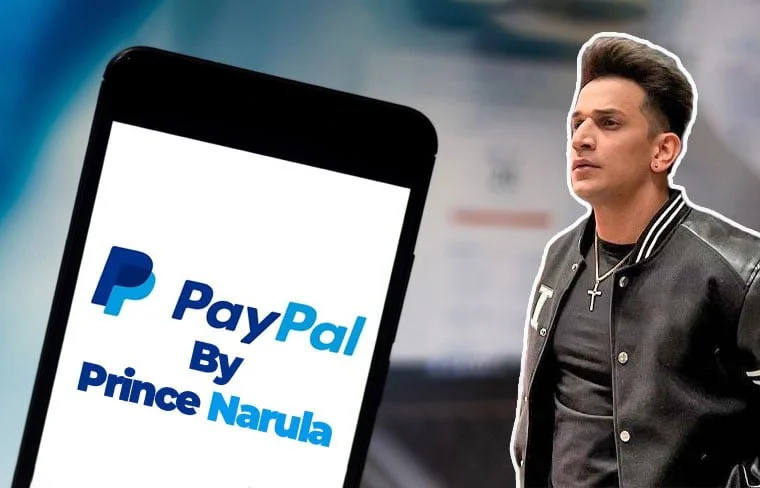Introduction to Online Payment Methods
In today’s digital era, online payment methods have become an integral part of our daily lives. The convenience of making payments from anywhere, at any time, has revolutionized the way we conduct transactions. Among the most prominent players in the online payment landscape is PayPal, a platform that has gained global recognition for its ease of use, security features, and widespread acceptance.
This article delves into the digital payment landscape, focusing on PayPal and other emerging payment methods, providing a comprehensive overview of how these systems work, their benefits, and why they are crucial for both consumers and businesses.
Understanding PayPal: The Pioneer of Digital Payments
What is PayPal?
PayPal is one of the pioneers in the digital payment industry, offering a platform that allows users to send and receive money online securely. Founded in 1998, PayPal has grown into a global leader in online payments, boasting over 400 million active accounts worldwide. The platform supports payments in multiple currencies, making it a preferred choice for international transactions.
How Does PayPal Work?
PayPal operates by linking your bank account, credit card, or debit card to your PayPal account. This linkage allows users to transfer funds without the need to share their financial details with the recipient. Whether you’re paying for goods and services online or sending money to friends and family, PayPal ensures that your transactions are secure, thanks to its encryption and fraud prevention technologies.
Key Features of PayPal
- Security: PayPal offers buyer protection, ensuring that users can get their money back if something goes wrong with a purchase.
- Convenience: With PayPal, users can make payments with just a few clicks, without having to enter their card details every time.
- Global Reach: PayPal is accepted by millions of merchants worldwide, making it an ideal choice for international transactions.
- Versatility: PayPal supports various types of transactions, including online shopping, sending money to friends and family, and receiving payments for services rendered.
Emerging Online Payment Methods
While PayPal remains a dominant force in the digital payment industry, several other online payment methods have emerged, offering unique features and benefits. These include Apple Pay, Google Pay, Stripe, and Square.
Apple Pay
Apple Pay is a mobile payment and digital wallet service by Apple Inc. that allows users to make payments using their iPhones, iPads, Apple Watches, and Macs. It is known for its ease of use and enhanced security features, such as biometric authentication (Touch ID and Face ID).
Google Pay
Google Pay is another popular digital payment platform that enables users to make purchases online, in apps, and in stores using their Android devices. It offers a seamless payment experience and integrates with various Google services, making it a convenient option for those already in the Google ecosystem.
Stripe
Stripe is a payment processing platform that caters primarily to businesses, providing them with the tools to accept payments online and in person. Stripe’s robust API allows businesses to customize their payment processes, making it a favorite among tech-savvy companies.
Square
Square is a versatile payment processing solution that offers a range of services, including point-of-sale systems, online payments, and invoicing. It is particularly popular among small businesses and entrepreneurs due to its simplicity and affordability.
The Advantages of Digital Payment Methods
Digital payment methods offer numerous advantages over traditional payment methods, making them the preferred choice for both consumers and businesses.
Convenience and Accessibility
Digital payment platforms like PayPal, Apple Pay, and Google Pay allow users to make payments from anywhere, at any time. This level of convenience is unmatched by traditional payment methods, which often require the physical presence of a card or cash.
Enhanced Security
Security is a major concern when it comes to online transactions. Digital payment platforms employ advanced encryption technologies and multi-factor authentication to protect users’ financial information. Additionally, services like PayPal offer buyer protection, which adds an extra layer of security for online shoppers.
Speed and Efficiency
Digital payments are processed almost instantly, reducing the time it takes for transactions to be completed. This is particularly beneficial for businesses, as it improves cash flow and reduces the time spent on administrative tasks related to payments.
Global Reach
Digital payment platforms support multiple currencies and are accepted by merchants around the world. This global reach is especially advantageous for businesses that operate internationally, as it allows them to accept payments from customers in different countries with ease.
Cost-Effectiveness
While traditional payment methods often come with high transaction fees, many digital payment platforms offer competitive rates, especially for international transactions. This cost-effectiveness makes digital payments an attractive option for businesses looking to reduce their operating costs.
Challenges and Considerations
Despite the numerous benefits, there are some challenges associated with digital payment methods that users and businesses need to be aware of.
Security Risks
While digital payment platforms are generally secure, they are not immune to fraud and cyberattacks. Users must remain vigilant and take precautions, such as using strong passwords and enabling multi-factor authentication, to protect their accounts.
Technical Issues
Digital payment systems are reliant on technology, and as such, they are susceptible to technical issues such as server downtime and software bugs. These issues can disrupt transactions and cause frustration for users.
Acceptance
Although digital payment methods are widely accepted, there are still some merchants, particularly small businesses, that do not accept certain platforms. This can limit the usability of digital payments in some situations.
The Future of Digital Payments
The future of digital payments is bright, with continuous advancements in technology leading to more secure, efficient, and convenient payment solutions. The rise of blockchain technology and cryptocurrencies, such as Bitcoin, is expected to further revolutionize the digital payment landscape by offering decentralized, peer-to-peer transactions.
Blockchain and Cryptocurrencies
Blockchain technology has the potential to disrupt the traditional financial system by enabling secure, transparent, and decentralized transactions. Cryptocurrencies, which operate on blockchain technology, offer an alternative to traditional currencies and have gained traction as a viable payment method.
Artificial Intelligence and Machine Learning
Artificial intelligence (AI) and machine learning (ML) are being integrated into digital payment systems to enhance security and improve the user experience. For example, AI can be used to detect fraudulent transactions in real time, while ML can be employed to personalize payment experiences for users.
Biometric Authentication
Biometric authentication methods, such as fingerprint scanning and facial recognition, are becoming increasingly common in digital payment systems. These technologies offer a higher level of security compared to traditional password-based authentication.
Conclusion
Digital payment methods, led by platforms like PayPal, have transformed the way we conduct financial transactions. They offer unparalleled convenience, security, and global reach, making them essential tools for both consumers and businesses. As technology continues to evolve, we can expect to see even more innovative and secure digital payment solutions emerge, further enhancing the way we manage our finances in the digital age.
















Got a Questions?
Find us on Socials or Contact us and we’ll get back to you as soon as possible.